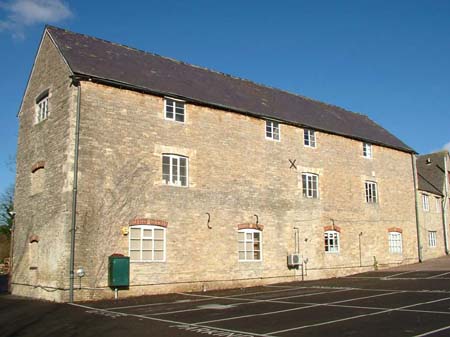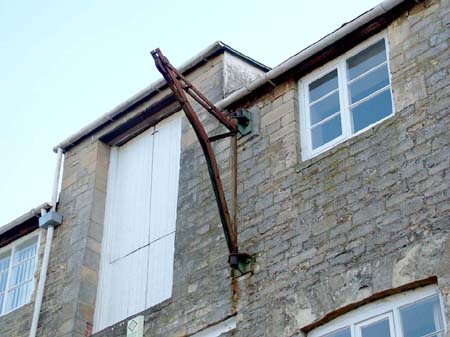55-56 West End
Situation
The buildings lie behind 55-56 West End, Witney and are reached
through an archway from the street.
Physical structure
 55-56 West End, Witney - former weaving shop at the rear of the
premises.
Owners
Edward Early owned the factory here from about 1840. Edward
Early and Sons was taken over by Charles Early and Co. in the
late 1890s, which retained the factory. By 1967 West End, like
Worsham and New Mills, had been sold to concentrate production
at Witney Mill where new offices and warehouses had been built.
What was the site used for?
 55-56 West End, Witney - crane at the top of one of the former
mill buildings.
Clare Sumner
|



